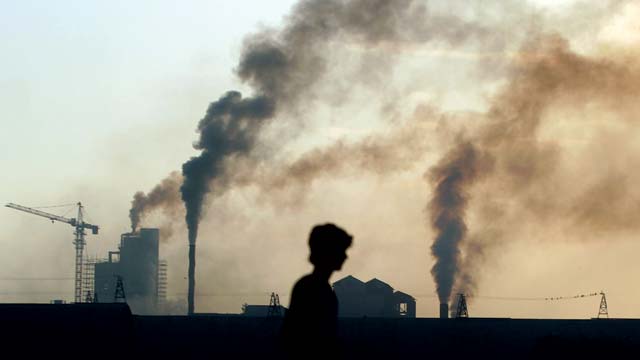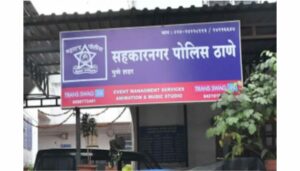Air Pollution Management programme likely to create between 20,000 to 40,000 jobs in Maharashtra

Bengaluru, 25th August 2022: With the National Clean Air Programme (NCAP) closing in on its first deadline, experts believe that the NCAP 2.0 should also ideally focus in pushing Air Pollution Management programme, which is likely to create between 20,000 to 40,000 jobs in Maharashtra alone.
“An estimated 1 million green jobs are available within the air quality domain alone across India. These trainings can be started at the IIT’s. For Maharashtra incase IIT Mumbai takes the lead and starts such training then even other institutes across the country might start it,” said Prof SN Tripathi, Senior Professor at the Department of Civil Engineering, IIT Kanpur, while speaking at the India Clean Air Summit 2022 (ICAS 2022), a 4-day event on the theme of ‘Looking at Air Pollution through the Climate Lens’ organised by the Centre for Study of Science, Technology and Policy (CSTEP).
Prof Tripathi added, “Developing and building these jobs, available within academia, tech, and health sectors, can significantly help in taking the National Clean Air Programme (NCAP) forward to its second phase.”
Air Pollution experts and researchers strongly believe that a large industrial state like Maharashtra with the highest number of non-attainment cities in the country can play a role model for other states by taking proactive steps can play a leadership role in time to come in achieving clean air for its citizen, CSTEP – a policy-research think tank – has assessed during the ICAS 2022.
Tripathi said currently India does not have a comprehensive air quality management programme, even our academics are not fully trained in the sole study of air quality. “Air quality management necessitates the development of such a standard, as well as the participation of health and economic experts. This programme, which is interdisciplinary, cannot be offered by a single department. I believe that in the next five years, we will require at least 1000 such professionals equipped with the right knowledge. This program can even be extended to include bureaucrats,” he said, adding that this program can even be extended to bureaucrats for overall air quality understanding.
Meanwhile, Prof Tripathi said that a proposal for hybrid-style monitoring to complement government monitoring has been formulated and forwarded to the Central Pollution Control Board (CPCB) for their approval. “There is an urgent need to significantly increase the scope of monitoring and the number of data points to enable better monitoring and management of air pollution levels,” he said.
With the deadline for the first phase of NCAP approaching, the second phase (NCAP 2.0) will need to look at how CPCB can promote new technologies. “Drawing from the experience of other countries, we need to look at how we can deploy multiple technologies like low-cost sensors and satellite monitoring to ensure we have robust data that both informs policies and helps us develop targeted solutions,” Prof Tripathi said., he added.
Maharashtra currently has 19 non-attainment cities (whose air did not match the national ambient air quality requirements of 2011 to 2015). The National Clean Air Programme (NCAP), announced by the Ministry of Environment, Forest and Climate Change (MoEFCC) in January 2019, has led to the development of clean air action plans with an aim to reduce PM2.5 pollution by 20–30% by 2024 compared to 2017.
“Maharashtra is a financial hub of the country in many ways and there is no doubt that it can play a leadership role for other states to follow in terms of implementing solutions, addressing socio economic challenges, governance structure and putting out a clear messaging which people can understand so that there is a behavioral change helping to solve the problem of air pollution,” said Dr Pratima Singh, Head of CAPS.
Estimates have shown that 25 cities across Maharashtra have higher ambient air quality levels when compared with the permissible levels. “Setting up a robust monitoring infrastructure across urban cities in the State will help build better plans for cities, which face air pollution but have yet not been identified as non-attainment cities. Using alternative methods like low cost sensors will only help better strengthen the monitoring infrastructure,” Singh stated.
During the ICAS 2022, experts suggested that a state like Maharashtra also needs to look beyond the NCAP deadline of 2024 and cannot limit its fight against air pollution to short term measures. “Maharashtra should focus on building policies for long term strategies as for instance to tackle waste management we cant simply stop at just advocating segregation. In years to come the waste generation will only increase and there has to be better policies on ground to ensure that waste is not burnt and mountains of landfills are a thing of the past,” said Dr Singh.
This year, in its 4th edition, ICAS brought together environmental activists, policymakers, industrialists, and students for a range of discussions that look at linkages between Air Pollution and Climate Change and how exploring these dual issues together can reveal important insights for policies. Speakers examined how India’s energy transition to renewable energy would impact the dual crises of air pollution and climate change.









